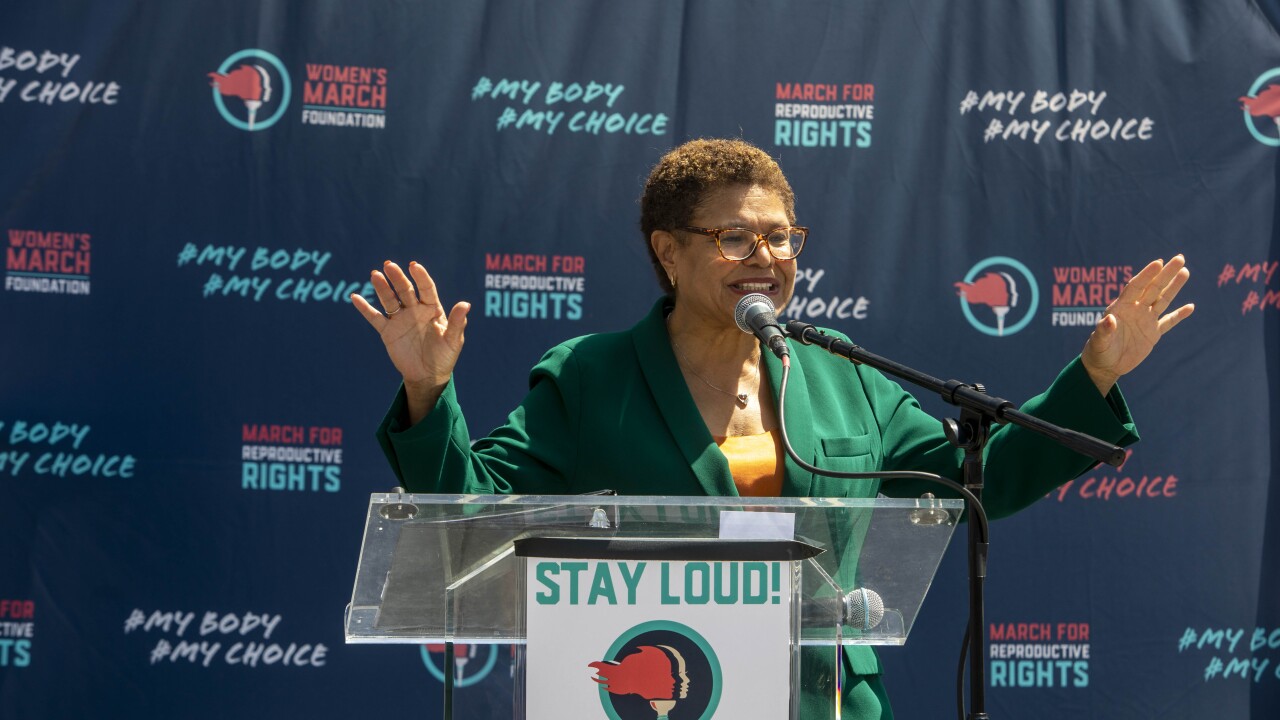WASHINGTON — The Municipal Securities Rulemaking Board has issued draft guidance warning broker’s brokers of their obligations under its rules following recent enforcement actions by the Securities Exchange Commission and the Financial Industry Regulatory Authority alleging rule violations.
The guidance was issued in a notice on Thursday, but the board said it may incorporate some of the guidance in proposed rules or rule changes in the future.
The MSRB invited market participants and members of the public to submit comments on the guidance by Nov. 15.
The guidance details how Rules G-18 on execution of transactions, G-30 on prices and commissions, and G-17 on fair dealing apply to broker’s brokers, which typically match dealer sellers with dealer buyers of municipal securities.
Much of the guidance relates to bid-wanteds, in which a selling dealer asks a broker’s broker to obtain the best bid that it can find for certain muni securities, without specifying a desired price or yield, the board said.
Bid-wanteds, which were the subject of several of the recent enforcement actions, tend to involve smaller retail-size blocks of bonds and relatively infrequently traded securities, the notice said.
The board defines a broker’s broker as “a broker, dealer, or municipal securities dealer that principally effects transactions for other brokers, dealers and municipal securities dealers ... or that holds itself out as a broker’s broker.”
A broker’s broker may be a separate business or part of a larger business, according to the MSRB.
“Under Rule G-18, a broker’s broker has an obligation to its dealer client to make a reasonable effort to obtain a fair and reasonable price in relation to market conditions — the same duty that a dealer has to a customer in an agency transaction,” the MSRB said in the notice. “The broker’s broker must employ the same care and diligence in doing so as if the transaction were being done for its own account.”
The board stressed that a bid-wanted is not always a conclusive determination of fair market value.
It said that, particularly when the fair market value of a security is not known, the broker’s broker may need to “check the results of the bid-wanted process against other objective data to fulfill its fair pricing obligations.”
The MSRB suggested that a broker’s broker trying to comply with G-18 should widely disseminate a bid-wanted to obtain exposure to multiple dealers with possible interest in the block of securities.
“No fixed number of bids is required,” the board said.
However, if the securities are small, have unusual features, or are of limited interest, “the broker’s broker must reach dealers with specific knowledge of the issue or known interest in securities of the type being offered,” the MSRB said. “It is not consistent with the Rule G-18 obligation of a broker’s broker for it to encourage off-market bids.”
Broker’s brokers also should not be representing both the seller and the bidder “unless that is disclosed prominently and both parties agree in writing in advance of a transaction.”
The MSRB said when broker’s brokers “effect” or execute occasional transactions with customers, Rule G-30 applies if they are principal transactions.
Rule G-30 states: “No broker, dealer or municipal securities dealer shall purchase municipal securities for its own account from a customer or sell municipal securities for its own account to a customer except at an aggregate price (including any mark-down or mark-up) that is fair and reasonable, taking into consideration all relevant factors, including the best judgment of the broker, dealer or municipal securities dealer as to the fair market value of the securities at the time of the transaction and of any securities exchanged or traded in connection with the transaction, the expense involved in effecting the transaction, the fact that the broker, dealer or municipal securities dealer is entitled to profit, and the total dollar amount of the transaction.”
Under Rule G-17, broker’s brokers “shall deal fairly with all persons and shall not engage in any deceptive, dishonest or unfair practice,” the MSRB said.
If a broker’s broker has a customer, it must “disclose that to both sellers and bidders in writing” because of the potential conflict of interest, the board said.
Furthermore, the broker’s broker “must put information barriers in place to ensure that customers are not provided with information about securities of other clients, including the ownership of such securities and information about bids (other than the winning bid that is reported to the MSRB).”
If a broker’s broker is part of a larger business, it must put information barriers in place to prevent non-public information from being transferred to the rest of the business organization, the board said.
“It is clearly a deceptive, dishonest, and unfair practice for a dealer holding itself out as a broker’s broker to purchase securities for its own account, rather than for the account of the highest bidder when a seller has engaged the broker’s broker to effect a trade on its behalf,” the MSRB warned.
The board said Rule G-17 prohibits broker’s brokers from providing preferential information to bidders in bid-wanteds on where they stand in the bidding process. “This prohibition precludes 'last looks,’ directions to a bidder that it should 'review’ its bid or that its bid is 'sticking out,’ ” the board said.
A broker’s broker also cannot submit fake cover bids, adjust a bid without the bidder’s knowledge; fail to inform the selling dealer of the highest bid, accept bids after deadlines, or submit fictitious trade prices, the MSRB warned.
The board said a broker’s broker must keep records of all bids, including “quick answer” bids, together with the time of receipt for at least three years, and records of bids cannot be “overwritten” when new bids are entered, the board said.





